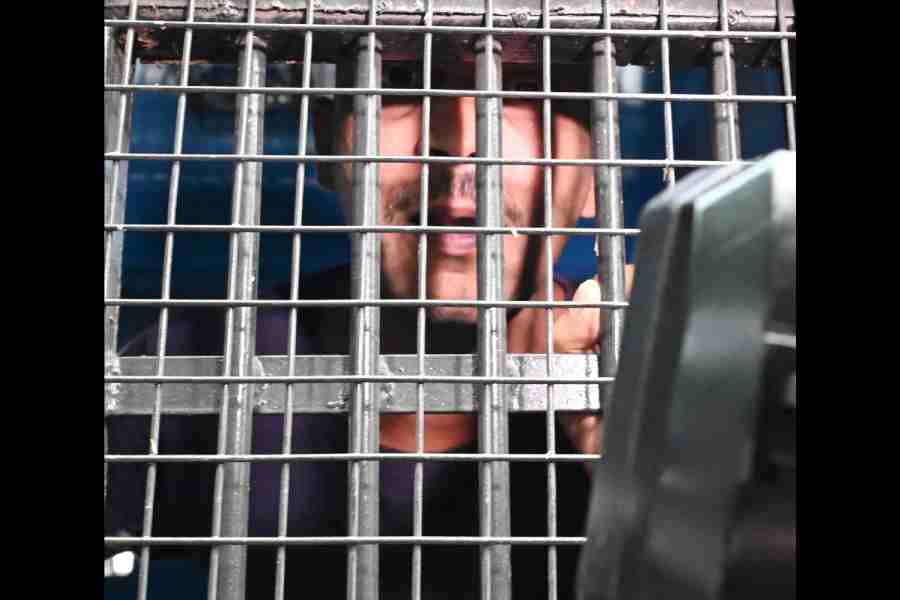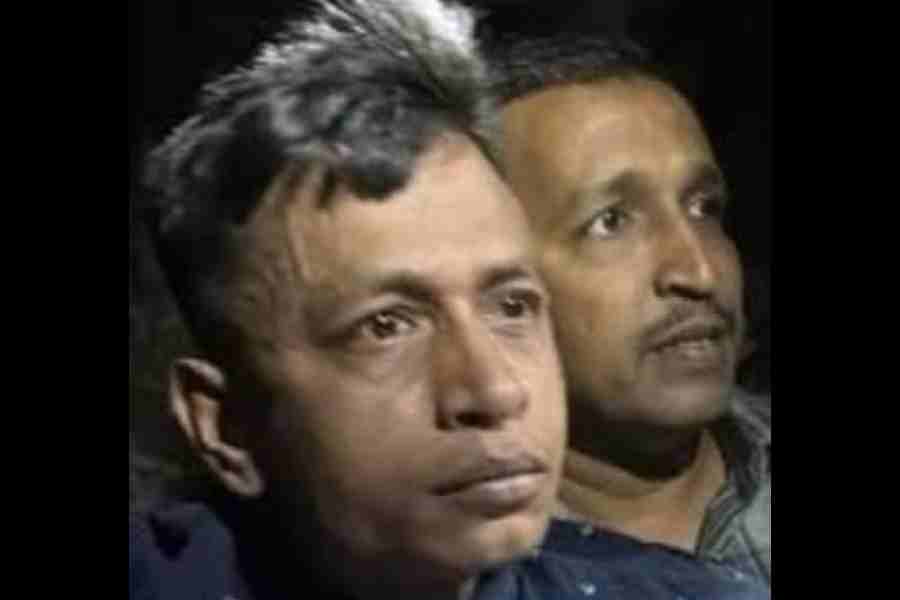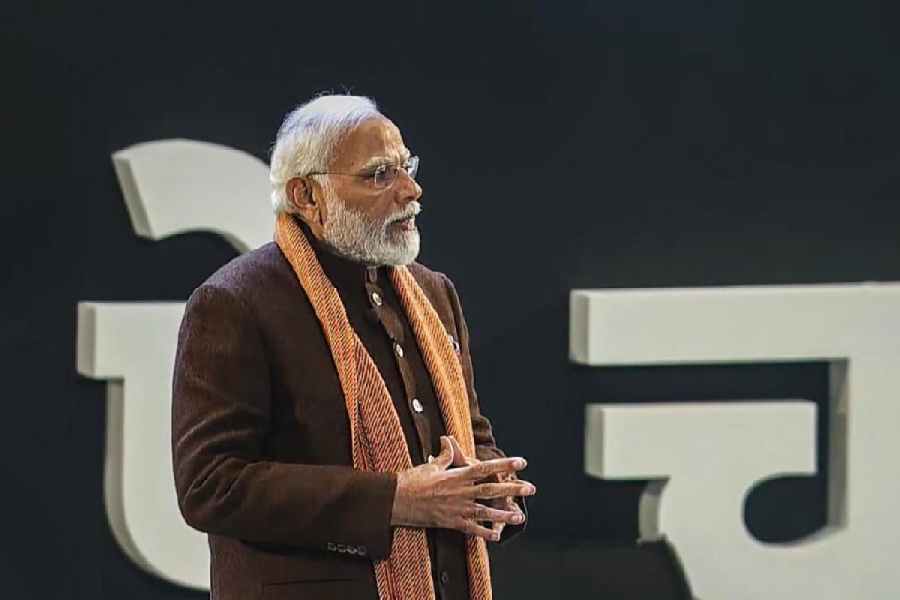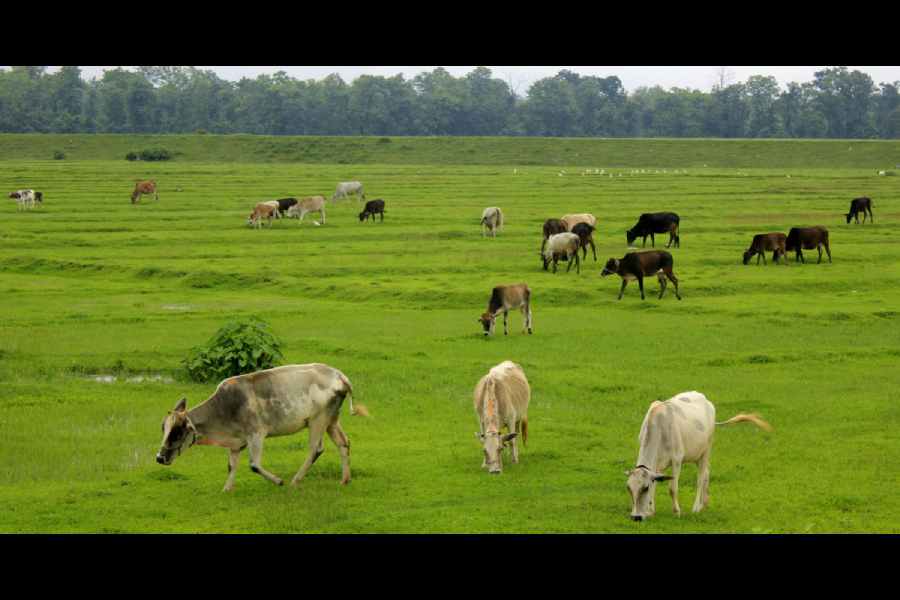Sir — The article, “Occupational hazard” (Aug 19), reminded me of George Orwell’s concept of ‘doublethink’. For Orwell, political vocabulary often harbours a contradictory tone. Facts are distorted, the meaning of words taken out of context and the idea that there is always a looming threat from an ‘enemy’ propagated. Orwell wrote 1984 at a time when the Soviet Union existed as a political entity and its government exercised absolute authority, so much so that citizens began to question their own freedom. This caged feeling seems rather familiar today, especially in the context of India.
Bhagirathi Tripathi,
Calcutta
Duty bound
Sir — The police have a duty to prevent citizens from drinking and creating a nuisance in public places.
Political leaders are elected to maintain law and order by helping the police carry out their duties sincerely. The news report, “Police station raid over arrest” (Aug 13), highlights the manner in which goons can assault law enforcement officials without any fear of repercussions. This is often because they enjoy the backing of local political leaders. When a constable in the police station was roughed up, why did no one rescue him or arrest his attackers immediately?
This case is serious enough to warrant the attention of the police commissioner himself, especially since it will keep the morale of the police force from flagging. This crime has to be investigated further.
This is not the first time that civilians have taken matters into their own hands and unleashed violence. Recently, goons had attacked doctors at a hospital. The incident caused such an outrage that the chief minister had to promise to ensure the doctors’ safety.
Benu Kumar Bose,
Calcutta
Sir — It is a matter of concern that three police stations in Bengal — in Tollygunge, Malda and Siliguri — were attacked by unruly mobs within 72 hours. The Tollygunge incident does not show the administration in a favourable light. The government always talks about fair administrative processes; why, then, was the law not allowed to take its own course in this case? The culprits should not be spared and corrective steps must be taken by the police to ensure that such untoward incidents do not recur.
Khokan Das,
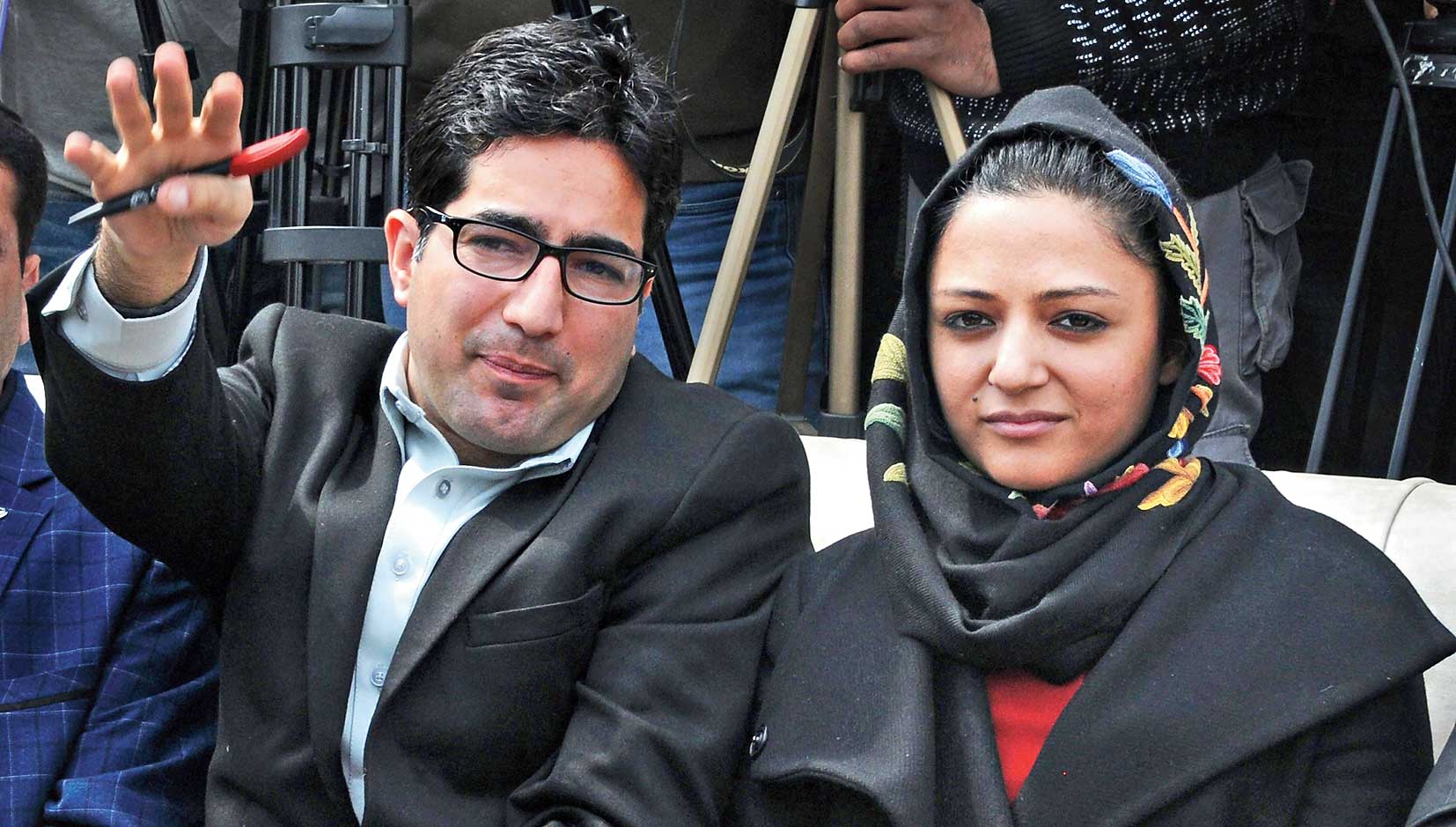
Shah Faesal with Shehla Rashid at the launch of his political party in Srinagar. It was alarming to read about the detention of the former IAS officer, Shah Faesal, at Delhi airport. He is not only an IAS topper, but also the son of a Kashmiri who was killed by militants (PTI)
Dark hour
Sir — Reactions to the changes made to the status of Jammu and Kashmir have been deeply polarized.
If a law is amended, it should be to the benefit of all citizens. Kashmir has witnessed years of conflict, with both India and Pakistan getting
involved. The ongoing conflict has many factors contributing to it: biased leadership, draconian laws, an absence of trust between the State and the people, and corrupt governance. Investing in education and jobs in the region and promoting cultural harmony will have a positive impact.
P. Senthil Saravana Durai,
Mumbai
Sir — In his article,“Light in the dark”( Aug 17), Ramachandra Guha quoted M.K. Gandhi as saying that only Muslims, Kashmiri Pandits, Rajputs and Sikhs can save Kashmir. But the government thinks otherwise: it feels that the Valley can be saved through the abrogation of Article 370. The latter had existed to protect the interest of the Kashmiri people; now, it has been abrogated without the opinion of the Kashmiris even being sought. Perhaps it is absurd to expect that Gandhi’s principle will be paid heed to. How can that happen in a country where his assassin is openly worshipped with impunity by Hindutvavadis?
For Gandhi, moral values stood above political considerations. He spent his life working for amity between the Hindu and Muslim communities: at the time of the Noakhali riots, he had gone to the district, even though he was aware that it might pose a threat to his safety. The growing intolerance towards dissent in India is in violation of Gandhi’s ideals.
Sanjit Ghatak,
South 24 Parganas
Sir — It was alarming to read about the detention of the former Indian Administrative Services officer, Shah Faesal, at the Delhi airport. Not only is he an IAS topper, but he is also the son of a Kashmiri who was killed by militants. As a citizen of free India, he has every right to go anywhere. And yet, he was detained on flimsy grounds. This dubious act proves that the situation in Kashmir is not normal. Kashmiris are being viewed with suspicion and surveilled.
Tapomoy Ghosh,
Katwa, Burdwan





